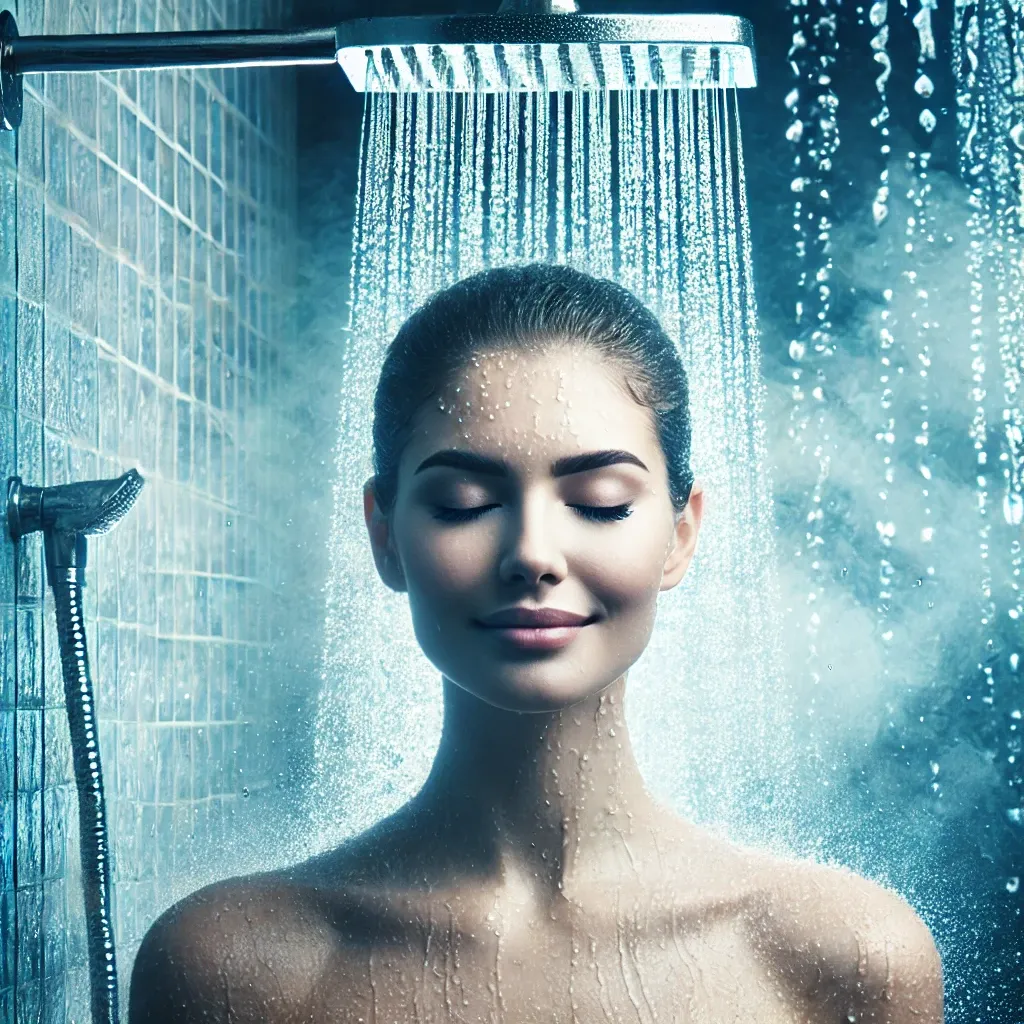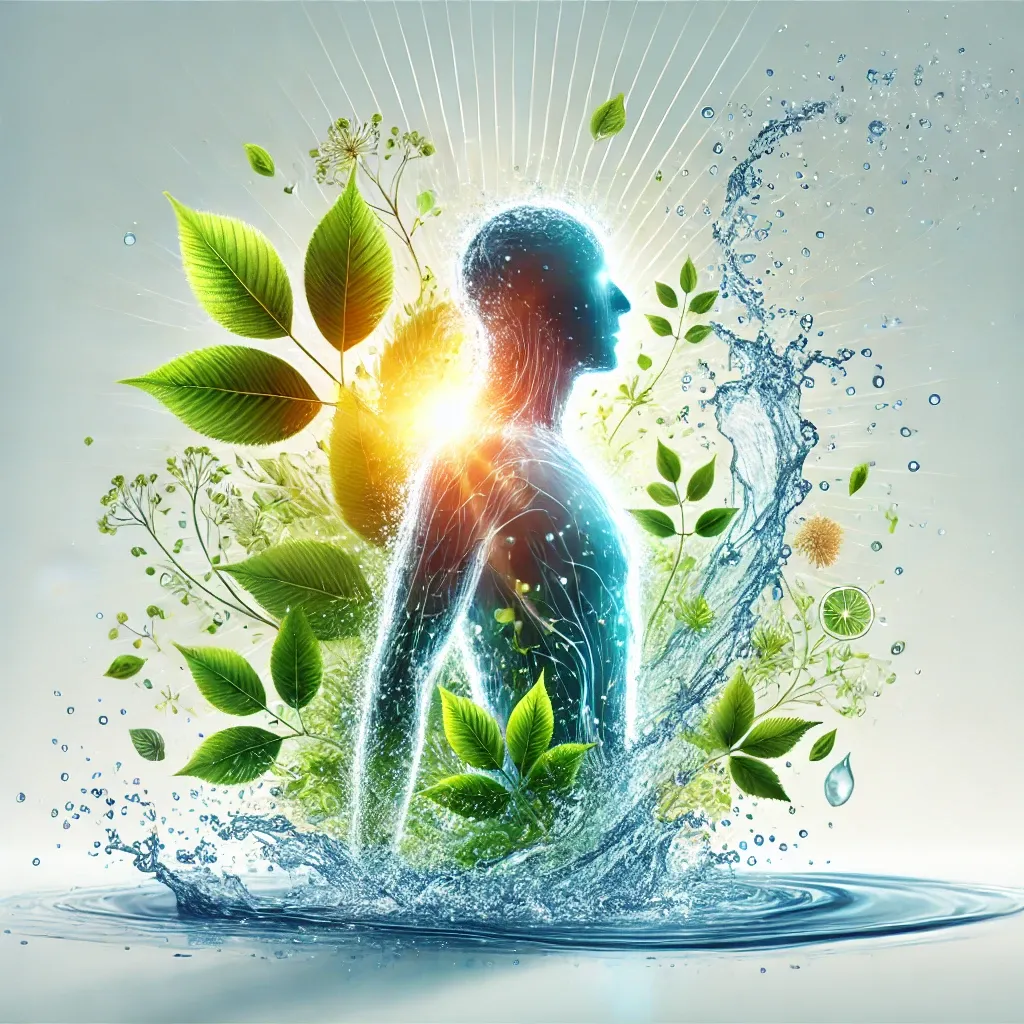📋 Table of Contents
Cold showers are not just a way to cool off from the heat. In ancient Greece, Rome, Japan, and Northern Europe, cold baths and showers were regarded as important rituals for health and mental well-being. 🛁
In recent years, cold showers have regained attention through movements like the “Cold Shower Challenge” and “Cold Water Therapy.” Beyond being a trend, scientific studies have revealed a variety of benefits, leading many people to adopt cold showers as part of their daily routine.
Personally, I think cold showers are a small but powerful routine that helps me start the day fresh. Although it’s shocking at first, once you get used to it, it becomes surprisingly addictive. 😊
Now, let’s take a closer look at how cold showers can benefit our bodies. I’ll share real-life examples, research findings, and practical tips for each section, so make sure to read through to the end!
❄️ Historical Origins of Cold Showers
The roots of cold showers go back much further than you’d think. The ancient Greeks used cold water as a form of “hydrotherapy” to purify both body and mind. Athletes who participated in the Olympic Games were known to train their muscles using cold water.
During the Roman era, there were bathhouse systems called “caldarium” where hot and cold water were used alternately. Nobles and soldiers made cold baths a regular part of their lives to recover from fatigue and maintain health. Japan’s “Misogi” and Finland’s tradition of rolling in snow after a sauna are also examples of cold water rituals.
In modern times, cold showers have evolved into a more scientific health practice involving thermoregulation, immunity boosting, and mental focus. Ice baths are now essential among athletes for faster post-workout recovery, and public interest in them is rising.
Recently, the globally popular “Wim Hof Method” has linked cold showers to meditation, breathing techniques, and mental discipline. Many enthusiasts around the world now share their cold shower challenges on YouTube and social media platforms.
🧊 Comparison of Traditional Cold Water Practices Around the World
| Country | Traditional Practice | Purpose | Time Used |
|---|---|---|---|
| Japan | Misogi | Spiritual cleansing and training | Before morning meditation |
| Finland | Snow roll after sauna | Stimulate blood circulation | Immediately after sauna |
| Russia | Ice water bath | Strengthen immunity | Winter religious ritual |
| Greece | Hydrotherapy | Physical training | Before and after exercise |
As you can see, cold showers are not just a passing fad but a healthy lifestyle practiced across many cultures over centuries. 🧼
💪 Enhancing Immunity and Improving Body Functions
One of the most notable benefits of cold showers is their ability to strengthen the immune system. According to research, consistent cold exposure increases white blood cell counts and promotes antibody production, boosting resistance to colds and viruses.
In a clinical study conducted in the Netherlands, people who took cold showers every morning for 30 days reported 29% fewer sick days compared to those who didn’t. This result supports the idea that cold showers can be an effective immune booster in real life.
Cold water also stimulates the adrenal glands, triggering the release of adrenaline. This activates the body’s “fight or flight” response, mobilizing energy quickly to cope with stress. This mechanism works in your favor when facing short-term stress.
While the first few cold showers may be shocking, the body gradually adapts to the stimulus. This adaptation is known as the “hormesis effect,” where small doses of stress strengthen the body. Like exercise, the more consistently you practice, the stronger you become!
🧬 Body Changes Before and After Cold Showers
| Category | Before Shower | After Shower |
|---|---|---|
| White blood cell count | Normal | Increased by 5~15% |
| Adrenaline | Normal | Rapid secretion activated |
| Energy levels | Average | Instantly boosted |
| Immune response | Normal level | Activated |
Ultimately, cold showers aren’t just a “mental challenge” — they’re a scientifically proven way to strengthen your immune system. With consistent practice, you’ll start to feel your body becoming naturally healthier! ❄️💪
🩸 Promoting Blood Circulation
When you take a cold shower, the cold temperature that touches your skin causes your body to automatically constrict blood vessels. This activates a circulatory mechanism known as “vasoconstriction and vasodilation,” making blood flow more active throughout the body.
This effect is particularly beneficial for people who suffer from cold hands and feet or poor circulation. After cold exposure, the body tries to restore its core temperature, which causes peripheral blood vessels to expand and blood to flow more strongly.
Such circulatory stimulation also has a positive impact on heart health. It helps regulate blood pressure, improves oxygen delivery, and stabilizes heart rate. In fact, many doctors recommend cold showers as a natural habit to prevent high blood pressure.
Moreover, taking a cold shower after exercise helps eliminate residual lactic acid in the muscles, reducing muscle soreness and speeding up recovery. That’s exactly why athletes choose ice baths — to catch both recovery and circulation in one go!
🩺 Circulatory Changes Before and After Cold Showers
| Indicator | Before Shower | After Shower |
|---|---|---|
| Heart rate | Normal (70~80 bpm) | Temporary increase then stabilizes |
| Blood pressure | Slightly elevated | Balanced and regulated |
| Peripheral blood flow | Sluggish | Increased by over 20% |
| Vascular elasticity | Normal | Improved |
In conclusion, cold showers are a natural way to support healthy circulation. Just investing 2 to 3 minutes a day can boost your heart health and energy — definitely worth a try! 🚿💖
🧘 Stress Relief and Mental Health
Cold showers don’t just refresh the body — they have a very noticeable impact on the mind as well. When exposed to cold water, the body releases dopamine, a feel-good hormone that helps stabilize mood and boost energy.
Especially in the morning, a cold shower can completely transform the start of your day. It clears your mind, enhances focus and alertness, and reduces feelings of anxiety. In a way, it acts as a natural meditation or mental reset.
Cold water stimulates the sympathetic nervous system, helping to regulate stress responses. As a result, cortisol — the stress hormone — decreases, which leads to an overall reduction in stress levels. One study found that people who regularly took cold showers had lower average depression scores.
Additionally, cold showers help build psychological resilience. The process of enduring physical discomfort also trains the mind to recover and bounce back more effectively. So when you’re going through tough times, a cold shower might help restore your inner balance.
🧠 Mental State Before and After Cold Showers
| Indicator | Before Shower | After Shower |
|---|---|---|
| Mood | Anxious or lethargic | Energized and refreshed |
| Focus | Cloudy or distracted | Clear and sharp |
| Cortisol levels | High | Reduced |
| Emotional stability | Unstable | Balanced |
In the end, cold showers offer not just physical health benefits but also emotional recovery and mental clarity. How about choosing a refreshing challenge instead of a warm shower tomorrow morning? ☀️🧼
💇♀️ Skin and Hair Care
Many people prefer hot showers, but when it comes to skin and hair, cold water is often the better choice. Hot water strips away natural oils from the skin and opens up pores, which can irritate sensitive skin.
In contrast, cold showers help tighten pores and retain moisture in the skin. As a result, breakouts decrease and skin becomes more elastic. For those with redness or sensitive skin, cold water has a soothing and calming effect, making it highly recommended.
Cold water is also great for hair health. Washing your hair with hot water opens the cuticles and makes hair feel rough, while cold water seals the cuticles, resulting in smoother and shinier strands. In fact, many salons use cold water during the final rinse.
Improved blood circulation in the scalp also promotes better nutrient delivery to hair follicles. This may help prevent hair loss. Try rinsing with cold water for just one minute a day to promote a healthier scalp and shinier hair. You’ll see the difference in the mirror! ✨
🧴 Comparison of Skin & Hair Conditions: Hot vs. Cold Showers
| Category | Hot Shower | Cold Shower |
|---|---|---|
| Skin condition | Dry, red | Moisturized, soothed |
| Pore reaction | Expanded | Contracted, improved elasticity |
| Hair texture | Dry and frizzy | Shiny and smooth |
| Scalp blood flow | Temporary irritation | Natural circulation |
In conclusion, cold showers are a great choice for both your skin and hair. Turn your daily shower into more than just a cleansing ritual — make it a beauty routine! 💦🧖♀️
🔥 Metabolism and Weight Control
Surprisingly, cold showers are also linked to weight loss. The reason lies in a special kind of fat in our bodies known as “brown fat.” This type of fat generates heat and consumes energy. Cold exposure activates this brown fat.
The shivering you feel after a cold shower is a physiological reaction to maintain body temperature. During this process, your body uses more calories, temporarily boosting your basal metabolic rate. Repeating this thermal effect can help support weight control.
In particular, taking a cold shower in a fasted state in the morning helps your body mobilize energy more actively and promotes fat burning. While cold showers alone won’t make you lose weight, they definitely give you an edge when practiced consistently.
Additionally, cold water increases insulin sensitivity. This improves blood sugar regulation, which can also positively affect the prevention of diabetes and metabolic syndrome. With just one splash of cold water, you can support both blood sugar and weight!
🔥 Cold Showers and Metabolic Reactions
| Category | Before Shower | After Shower |
|---|---|---|
| Basal metabolic rate | Average | Increased by 10~15% |
| Fat burning efficiency | Normal | Activated |
| Brown fat activity | Low | Stimulated |
| Insulin sensitivity | Average | Improved |
In short, cold showers go beyond thermoregulation — they can actually help boost metabolism and support weight management. Start your day with a splash of cold water to ignite your body! 🔥💧
FAQ
Q1. How many times a day is it appropriate to take a cold shower?
A1. Once a day, especially in the morning, is recommended. It’s most effective for boosting energy and immunity.
Q2. Is it okay to take a cold shower even in winter?
A2. Yes, as long as you take care to maintain body temperature. Be sure to warm up and cover yourself well after the shower.
Q3. Does cold showering have any negative effects on the skin?
A3. On the contrary, it soothes the skin and tightens pores, which helps reduce breakouts. For sensitive skin, short sessions are best.
Q4. Is it okay to wash hair with cold water?
A4. Yes! Cold water helps seal the cuticles, making your hair shinier and smoother.
Q5. Can people with high blood pressure take cold showers?
A5. Sudden temperature changes require caution. It’s best to consult with a doctor and gradually adapt to the routine.
Q6. Do cold showers help with weight loss?
A6. They help indirectly by boosting metabolism and activating brown fat, rather than causing direct weight loss.
Q7. How long should a cold shower last?
A7. Beginners can start with 30 seconds and gradually increase to 2–3 minutes. The key is not to overdo it.
Q8. Do cold showers really help with post-workout recovery?
A8. Yes! They help reduce inflammation and flush out lactic acid, easing muscle soreness and speeding up recovery.

